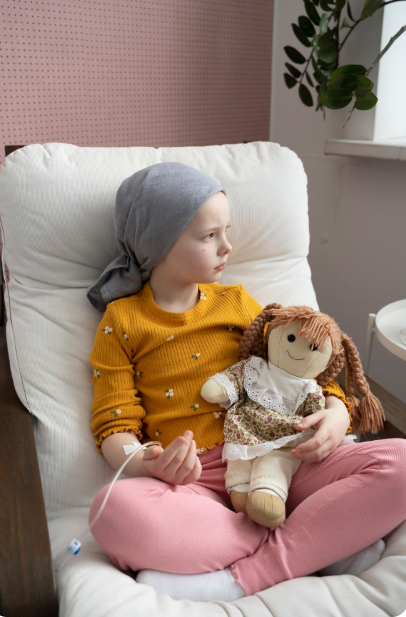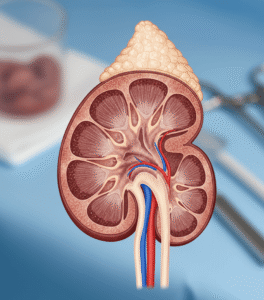Overview
Childhood cancers are a group of malignant diseases that occur in children and adolescents, affecting various tissues and organs. In Korea, advances in pediatric oncology, early diagnosis, and targeted therapies have significantly improved survival rates. National healthcare programs also provide specialized support for families of children with cancer.
What are Childhood Cancers?
Childhood cancers differ from adult cancers in their types, growth patterns, and response to treatment. Common types include leukemia, brain and central nervous system tumors, lymphomas, neuroblastoma, and Wilms tumor. Early detection and prompt treatment are critical for successful outcomes.
Symptoms
Symptoms vary depending on the type of cancer but may include:
- Unexplained fever or infections
- Unusual lumps or swelling
- Persistent fatigue or weakness
- Weight loss or poor appetite
- Bone or joint pain
- Frequent bruising or bleeding
- Headaches, vomiting, or vision changes (for brain tumors)
- Night sweats or swollen lymph nodes
Causes
- Exact causes are often unknown
- Genetic predisposition or inherited mutations
- Exposure to radiation or certain chemicals (rare in children)
- Some cancers may arise from developmental abnormalities in cells
Risk Factors
- Family history of certain cancers or genetic syndromes
- Certain inherited conditions (e.g., Li-Fraumeni syndrome, Down syndrome)
- Exposure to environmental carcinogens during pregnancy or early childhood
- Immune system deficiencies or previous chemotherapy/radiation treatment
Complications
- Metastasis or spread of cancer to other organs
- Organ damage from cancer growth or treatment
- Severe infections due to immunosuppression
- Growth or developmental delays
- Emotional and psychological stress for the child and family
Prevention
- While most childhood cancers cannot be fully prevented, risk reduction includes:
- Avoiding unnecessary exposure to radiation or harmful chemicals
- Genetic counseling for families with a history of cancer
- Early detection through routine pediatric check-ups and monitoring
Treatment Options in Korea
Korean healthcare offers comprehensive pediatric oncology services:
- Chemotherapy: Standard treatment for leukemia, lymphomas, and other cancers
- Surgery: Removal of solid tumors when feasible
- Radiation therapy: Targeted use for brain tumors and certain solid cancers
- Targeted therapies and immunotherapy: Advanced treatments available in specialized centers
- Stem cell or bone marrow transplantation: For high-risk leukemia or relapsed cases
- Specialized hospitals in Korea:
- Samsung Medical Center Pediatric Oncology Department
- Seoul National University Children’s Hospital
- Asan Medical Center Pediatric Hematology/Oncology
- Severance Hospital Children’s Cancer Center
- Supportive care:
- Pain management and palliative care
- Nutritional support and rehabilitation
- Psychological counseling and family support programs













